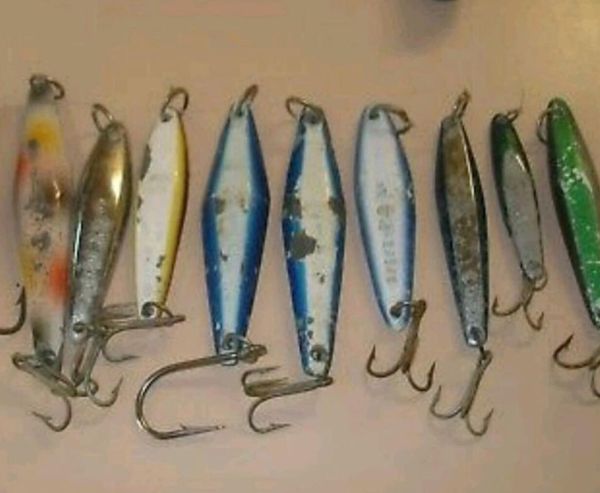


Then something happened out of nowhere. As I sat alone at the end of the bleachers, covered in my sweat and the dust from the field, Charlie, our centerfielder stood up and interrupted the coach’s mocking. Charlie was a few years older than me and the brother of the boy I had replaced as catcher. He said to the coach he was wrong to single me out for the loss, and he pointed to the team’s inability to win the game. Charlie came over to me and shook my hand, and all my teammates surrounded me. I saw Jesus in Charlie that day, and I can’t help but remember both of them every Spring. (Pause for Thought: “Even now my witness is in Heaven; my advocate is on high. My intercessor is my friend as my eyes pour out tears to God; on behalf of a man he pleads with God as one pleads for a friend.”—Job 16:19-21. When has someone stood up for you? How does knowing Jesus stands at the right hand of God vouching for your body, soul, and spirit change the way you look at living life and taking risks for the Kingdom?)


My grandpa would take the recovered lures, and using his God-given talents, restore them to pristine condition. Many times the lures were improved with little flourishes and “touches” unique to my grandpa’s talents as a craftsman and fishermen. Trolling lures received squirrel tail dressing to add life-like movement. Spoons and jigs received fish-appropriate paint jobs that could withstand the stresses of rocks, wood, and fish teeth. I loved receiving these baits back from my grandpa during Christmas and birthdays. It was purposeful art created from long lost possessions recovered by those who took the time and effort to care. (Pause for Thought: “And the God of all grace, who called you to his eternal glory in Christ, after you have suffered a little while, will Himself restore you and make you strong, firm, and steadfast.”—1 Peter 5:10. How does this Holy Week culminating in Jesus’ resurrection and restoration to the throne help you in your current circumstances? What joy do you have for your future now that sin, and its consequence of death, has been defeated? What hope and strength can you gain from your association with Jesus’ suffering, death, and recovery from the grave?)


He guzzled his orange juice in a minute and gave me a large, appreciative, smile. He shook my hand and left the shop waving good-bye through the window. My spirit was immediately filled with the image of the scripture, “Then the righteous will answer Him, ‘Lord when did we see you hungry and feed you, or thirsty and give you something to drink?’ The King will reply, ‘Truly I tell you, whatever you did for the least of these brothers and sisters of mine, you did for me’.” (Pause for Thought: “On the day I shall act’, says the Lord Almighty, ‘They will be my treasured possession. I will spare them, just as the father has compassion and spares his son who serves him. And you will again see the distinction between the righteous and the wicked, between those who serve God and those who do not’.”—Malachi 3:17-18 How important is it, for us, to remember and recognize God? How do you remember and recognize Him? How often do you do so? How important, to you, is it for God to remember and recognize you? What will He remember you for thinking and doing?)








I often ask my wife and son if I look like Jesus to them. I don’t mean in physical appearance, and they don’t think as such. If I have looked like Jesus to them, it’s been in the way I gave. They don’t say I look like Jesus because I did my devotions, or taught a Sunday School class, or wrote an article. They say I look like Jesus if I gave encouragement to them or someone else, or if I gave to someone in ministry out of my pocket, or if I gave love and attention to an unlovable/unnoticeable, or even if I gave my story (testimony) to someone who didn’t know Jesus the way I do. Cowboys gave, and still give, me great pleasure to watch. My dad gave me a place (house) and position (physical) being on this earth. My heavenly Father gave me completeness in everything, including all time (eternity), to share it with Him. I think He is worth imitating. (Pause for Thought: “Your attitude should be the same as that of Christ Jesus.”—Philippians 2:5. How do you feel, emotionally, about living a life of sacrifice? How is Paul’s instruction to us in Romans different than the world’s instruction to us? What is happening and has happened when the world’s way is followed? What happened to you because Jesus lived a sacrificial life? Who will you imitate?)




I have encountered people who suppose God must look and consider them in the same they look and consider ants. I’m not sure how they can rate people as high as ants. I wonder if that is why Cain’s story turned out the way it did. Cain never understood or accepted the Divine design. He repeated the mistake his parents made in trying to cover his sins, and maybe the sins of the world at the time (see Genesis 3:15), with his own efforts from what came from the ground. I imagine Adam, Eve, and Abel tried to explain God’s design of care and provision and imitate it for him, but with the bitterness of an ungrateful heart, Cain lacked a worshipful spirit, and he continued in the iniquity of his ways. We need to consider and be the aphid. (Pause for Thought: “After this I looked and there before me was a great multitude that no one could count, from every nation, tribe, people and language, standing before the throne and in front of the Lamb. They were wearing white robes and were holding palm branches in their hands. And they cried out in a loud voice: ‘Salvation belongs to our God, who sits on the throne and to the Lamb’.”—Revelation 8:13. What do you need saved from in your life right now? How does/will your rescue fit into the Divine Design? How will you show your appreciation for your place and being within God’s design?)


If Jesus’ end justifies our place and being, what does that mean for us? What then should be our response to all of this? If you are like most Christians I encounter, they are on a path of trying to earn this justification and glorification. But if something has already been given to you, how can you earn it? You can’t. You are supposed to use it. I figure, scripturally speaking, we use it in three ways—APPRECIATION=WORSHIP (Come, let us bow down in worship, let us kneel before the Lord our Maker; for he is our God and we are the people of his pasture, the flock under his care.—Psalm 95:6-7); DEVOTION=OBEDIENCE (Peter and the other apostles replied: “We must obey God rather than men!”—Acts 5:29); and IMITATION=SACRIFICE (Therefore, I urge you brothers, in view of God’s mercy, to offer your bodies as living sacrifices, holy and pleasing to God—this is your spiritual act of worship.—Romans 12:1). (Pause for Thought: How does knowing the end make it easier to live out your appreciation, devotion, and imitation of Jesus? In what practical ways will you live up to your justification and glorification in front of others this week?)